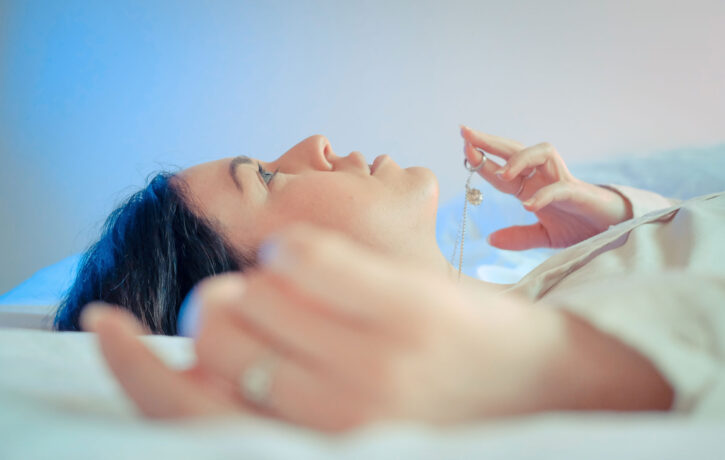Do You Have Trouble Falling Asleep or Staying Asleep?

If you have trouble falling asleep or staying asleep, you’re not alone. Many people struggle with sleep, but there are steps you can take to improve the quality and quantity of your sleep. In this post, I’ll provide you with some helpful tips for improving your sleep associations and making sure that you get the rest you need to feel your best. From creating a comfortable sleeping environment to developing a constructive worry routine, these tips can help you achieve a better night’s sleep.
- To maintain good sleep hygiene, avoid consuming caffeine at least seven hours before bedtime. Also, refrain from eating heavy meals or engaging in strenuous exercise two hours before bed.
- Ensure that your sleeping environment is cool, dark, and quiet to support your body’s natural sleep temperature and promote sleep hormones. A fan or sleep mask can help you achieve this.
- Designate your bedroom as a space solely for sleep and intimacy by avoiding other activities such as working, reading, watching TV, or using your phone. This helps you associate your bedroom only with sleep.
- Dedicate some time to constructive worry by writing down things you are thankful for, events you look forward to, and ways to extend those feelings. Then, write down any concerns or worries and develop a plan to address them the following day.
- If your bedtime routine interferes with your ability to fall asleep easily, try moving those activities to a couple of hours before bedtime. Follow this with a “buffer zone” where you can allow thoughts and feelings to surface and then pass. This reduces the likelihood of bringing those thoughts to bed.
- Maintain a regular sleep schedule by going to bed and waking up at the same time every day, even on weekends. This helps regulate your body clock, which triggers the release of the hormone Melatonin that signals your body to sleep.
We offer CBT-I at The Body Matters. Cognitive behavioural therapy for insomnia is about treating insomnia using an evidenced-based approach over the course of 6-8 weeks. Call us on 01702 714968 for more information.
This article was written by Samantha Fonseca. Samantha has been developing and solving people’s sleep challenges for two years and is determined to help as many people as possible regain control of their sleep and feel healthier and happier than ever before!
- Non-Pharmacological Solutions for Managing Pain in Parkinson’s - 19th February 2025
- The Healing Touch: How Massage Benefits People with Spinal Injury Pain - 28th January 2025
- Understanding Achilles Tendinopathy and Its Contributing Factors - 11th December 2024
